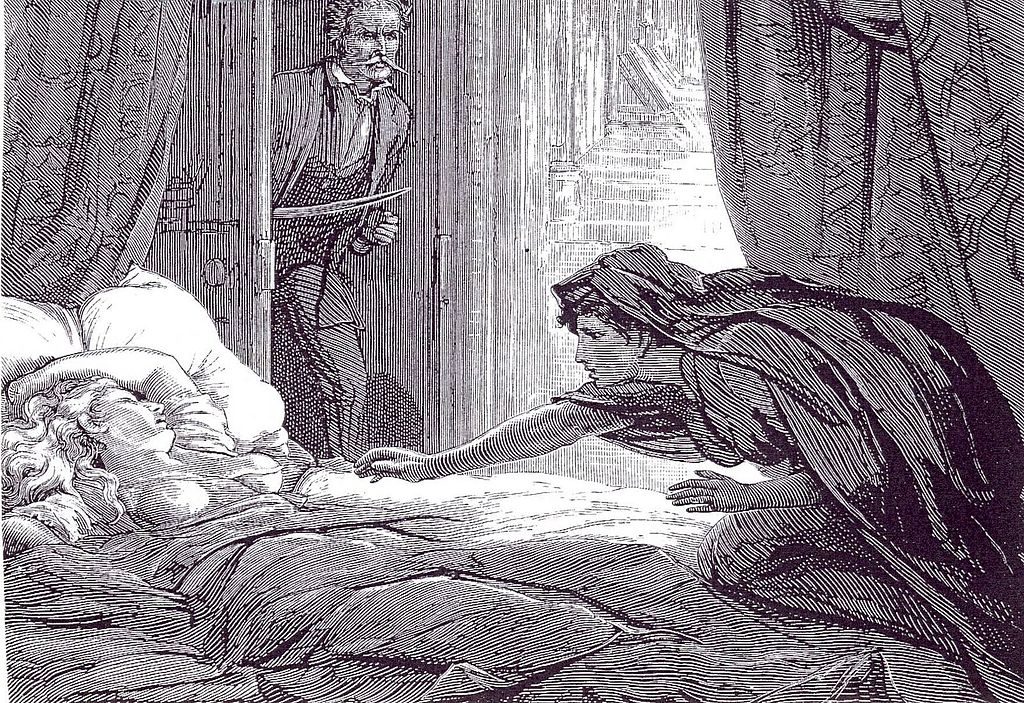 Was Anita Brookner a vampire? She died last month at age 87, the author of two dozen novels, from A Start in Life (published in the United States as The Debut) to Strangers. Her author photo remained unchanged over the three decades she was publishing her novels, like a vampire’s might. In it she looks pale, ladylike, alert, carefully coiffed — hard to pin down in terms of age or date. Her teeth aren’t showing, the better to nip the unsuspecting reader.
Was Anita Brookner a vampire? She died last month at age 87, the author of two dozen novels, from A Start in Life (published in the United States as The Debut) to Strangers. Her author photo remained unchanged over the three decades she was publishing her novels, like a vampire’s might. In it she looks pale, ladylike, alert, carefully coiffed — hard to pin down in terms of age or date. Her teeth aren’t showing, the better to nip the unsuspecting reader.
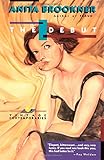
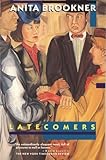 Brookner’s novels are inhabited by middle-class types, solitary and stoic. As some readers have noted, nothing much happens in these books; people go to the shop, they return to their quiet flats, they eat a little, they make tea, they think. Sometimes they visit the hairdresser or a museum. Sometimes someone dies, and there’s a quiet funeral. Conversations are economical and frequently unemotional. Sadness puffs around like a gas. But these are men and women holding white-knuckled to the ledge above “the abyss that waits for all of us,” as a character puts it in Latecomers. Below the placid surfaces lie exile, adultery, unrequited love, loss, amorphous fear, and dread. Nobody does depression quite so elegantly. Buffeted and baffled by life, her characters’ strength is in their stasis.
Brookner’s novels are inhabited by middle-class types, solitary and stoic. As some readers have noted, nothing much happens in these books; people go to the shop, they return to their quiet flats, they eat a little, they make tea, they think. Sometimes they visit the hairdresser or a museum. Sometimes someone dies, and there’s a quiet funeral. Conversations are economical and frequently unemotional. Sadness puffs around like a gas. But these are men and women holding white-knuckled to the ledge above “the abyss that waits for all of us,” as a character puts it in Latecomers. Below the placid surfaces lie exile, adultery, unrequited love, loss, amorphous fear, and dread. Nobody does depression quite so elegantly. Buffeted and baffled by life, her characters’ strength is in their stasis.
Like one of her white-knuckled heroes, at first look Brookner may seem static as well. Her novels were produced at regular intervals — slim and attractive, with nary a word out of place. In them all excess is gross, whether verbal or sentimental or gastronomic. In Dolly, the title character inspires repulsion in the narrator, Jane, with her flesh and her open sexual need. Jane watches in half-horrified fascination as Dolly, like several other Brookner creations, runs away with the story, the freak who doesn’t fit easily into Jane’s tiny, tidy world.
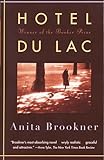
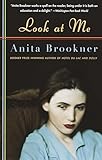 Brookner harbored some fondness for her freaks; it’s not easy to find what publishers call “comparables” for Brookner, either. When her masterpiece Hotel du Lac, a novel about an Englishwoman recovering in Switzerland from an affair, won the 1984 Booker Prize against 10-1 odds, some puzzlement ensued. Who was this writer, and how should she be categorized? In Look at Me, Frances, a solitary researcher half-hoping for friendship, tells us, “problems of human behaviour still continue to baffle us, but at least in the Library we have them properly filed.”
Brookner harbored some fondness for her freaks; it’s not easy to find what publishers call “comparables” for Brookner, either. When her masterpiece Hotel du Lac, a novel about an Englishwoman recovering in Switzerland from an affair, won the 1984 Booker Prize against 10-1 odds, some puzzlement ensued. Who was this writer, and how should she be categorized? In Look at Me, Frances, a solitary researcher half-hoping for friendship, tells us, “problems of human behaviour still continue to baffle us, but at least in the Library we have them properly filed.”
The sometimes cursory Frances might file Brookner with early-20th-century novelists. Like the Edwardians, Brookner’s characters are privately concerned with class and sex and money, whether or not they admit it. Their childhoods revolve in their heads. Like E.M. Forster’s people, hers are trying to work out how to connect. Like Virginia Woolf’s Mrs. Ramsay, they tell life to “stand still here,” even as it rushes past them. Like T.S. Eliot, they look hard at time: how to fill it, how to get more of it, how to find their way back to a lost, foggy, genteel era. Like Samuel Beckett’s men, they wait.

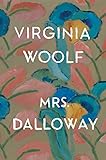 But it’s a mistake to see Brookner as a throwback from an earlier age. Look again, and you’ll see the way Brookner quietly muscles Modernist themes beyond their limits. Her characters aren’t sure they want to “only connect,” or to wait for life to turn up. Like any good vampire, Brookner feeds on her literary antecedents, picking their bones; she uses them to build her own structures, subtly questioning the tropes of the psychological novel of yesteryear. She one-ups Woolf’s and James Joyce’s stream-of-consciousness, showing us minds at war with their owners: In Look at Me, lonely Frances — feeling her life paling before that of a powerfully attractive couple — observes “somewhere, intruding helplessly and to no avail into my consciousness, the anger of the underdog, plotting bloody revolution, plotting revenge.” Rather than submerging us inside consciousness à la Mrs. Dalloway or Ulysses, Brookner is always outside her people, just at their backs — an intruder tuning us into their thoughts at a slight remove, whether in first- or third-person narration. She can see them, but they can’t see her. Uneasy but unaware they’re being observed, they reveal themselves fully.
But it’s a mistake to see Brookner as a throwback from an earlier age. Look again, and you’ll see the way Brookner quietly muscles Modernist themes beyond their limits. Her characters aren’t sure they want to “only connect,” or to wait for life to turn up. Like any good vampire, Brookner feeds on her literary antecedents, picking their bones; she uses them to build her own structures, subtly questioning the tropes of the psychological novel of yesteryear. She one-ups Woolf’s and James Joyce’s stream-of-consciousness, showing us minds at war with their owners: In Look at Me, lonely Frances — feeling her life paling before that of a powerfully attractive couple — observes “somewhere, intruding helplessly and to no avail into my consciousness, the anger of the underdog, plotting bloody revolution, plotting revenge.” Rather than submerging us inside consciousness à la Mrs. Dalloway or Ulysses, Brookner is always outside her people, just at their backs — an intruder tuning us into their thoughts at a slight remove, whether in first- or third-person narration. She can see them, but they can’t see her. Uneasy but unaware they’re being observed, they reveal themselves fully.
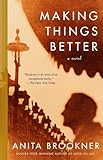 As the intruder draws near, Brookner’s wit reveals itself. She appears to observe her troubled characters from neutral territory, all the while inviting us to see the claustrophobic patterns they’ve woven of their own lives. Like petit-point embroidery, the details are hypnotic, the product of intensely focused skill. (The physical details shine, too; Brookner was a professor of art history as well as a novelist, and it shows. Her interiors and clothing and features are always finely described.) Brookner’s characters are aesthetes who often turn to museums and galleries for help, though she reminds us in Making Things Better that “art [is] indifferent to whatever requirements [we] might bring to the matter.” But Brookner’s own highly-wrought art isn’t quite indifferent to us. Read closely enough, and you’ll feel it watching you, too.
As the intruder draws near, Brookner’s wit reveals itself. She appears to observe her troubled characters from neutral territory, all the while inviting us to see the claustrophobic patterns they’ve woven of their own lives. Like petit-point embroidery, the details are hypnotic, the product of intensely focused skill. (The physical details shine, too; Brookner was a professor of art history as well as a novelist, and it shows. Her interiors and clothing and features are always finely described.) Brookner’s characters are aesthetes who often turn to museums and galleries for help, though she reminds us in Making Things Better that “art [is] indifferent to whatever requirements [we] might bring to the matter.” But Brookner’s own highly-wrought art isn’t quite indifferent to us. Read closely enough, and you’ll feel it watching you, too.
If you’re not alert, you can miss these elements of Brookner’s work. And if you’re not alert, she doesn’t want you as a reader. There’s a velvet ruthlessness to Brookner: Keep up, she seems to say, while she slips into French for a page, or discusses paintings you feel you ought to know. But the flip side of ruthlessness is trust. She trusts her readers to know what she means. Occasionally we can feel her eyes flick towards us, the same way she looks at her characters: You see, don’t you? We end up wanting to please her, a very neat trick on a novelist’s part.
 We on Team Brookner also end up trusting her entirely. You mainline her books one after the other, infected by her intense sensibility before you realize it. You can fall drowsily into her closed worlds and curl up in them. Remain vigilant and you’ll recognize her power, though it will still wind up seducing you. Bram Stoker described his Dracula as having “a mighty brain, a leaning beyond compare, and a heart that knew no fear and no remorse.” Brookner’s friend Julian Barnes wrote that she was not at all one of her lonely heroines, despite what male critics have decided: “She was witty, glitteringly intelligent, reserved, and unknowable beyond the point she herself had already decided upon.” In her deft hands, Brookner’s characters face oblivion as bravely as they can; our task is face their author just as bravely, baring our necks.
We on Team Brookner also end up trusting her entirely. You mainline her books one after the other, infected by her intense sensibility before you realize it. You can fall drowsily into her closed worlds and curl up in them. Remain vigilant and you’ll recognize her power, though it will still wind up seducing you. Bram Stoker described his Dracula as having “a mighty brain, a leaning beyond compare, and a heart that knew no fear and no remorse.” Brookner’s friend Julian Barnes wrote that she was not at all one of her lonely heroines, despite what male critics have decided: “She was witty, glitteringly intelligent, reserved, and unknowable beyond the point she herself had already decided upon.” In her deft hands, Brookner’s characters face oblivion as bravely as they can; our task is face their author just as bravely, baring our necks.
Image Credit: Wikimedia Commons.








